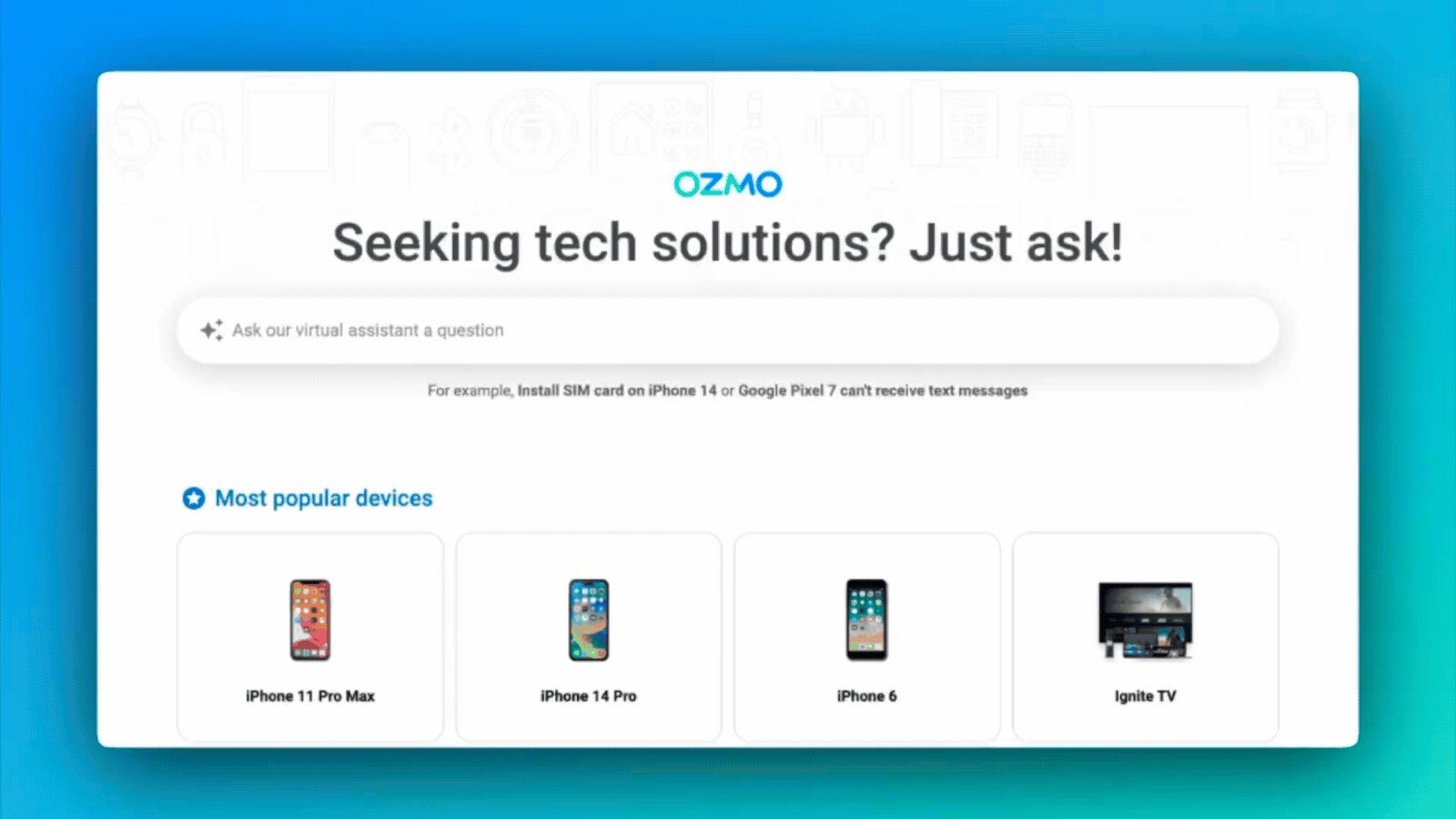As a mobile virtual network operator (MVNO), you and your customers weren’t made to fit into a box. You have a niche customer base and want to provide them with the best possible experience. As an MVNO, you know that a strong mobile virtual network enabler (MVNE) is the backbone of your success.
Yet, MVNEs tout a “one-size-fits-all” approach, trying to push your business into a rigid structure that wasn’t designed for you and your company’s unique needs. So, how can you ensure you’re choosing the right MVNE partner for your business? Below, we go over some key questions to ask to help you identify the right vendor for your company.
The role of MVNEs in MVNO partnerships
First, what is an MVNE? MVNEs are telecom providers that supply MVNOs with the necessary technical infrastructure for their business operations. Good MVNE vendors are the backbone of successful MVNO launches.
How exactly do the two work together? Imagine a coffee shop. The MVNO is like the barista and the main area of the coffee shop that customers interact with. Like the barista, MVNOs are responsible for customer-facing aspects of the business.
The MVNE, on the other hand, is like the shop’s kitchen staff. They don’t interact with the customer directly, but work hard behind the scenes to organize supplies and maintain the espresso machines and other equipment that the barista needs to do their job efficiently.
In short, MVNOs handle the customer-facing aspects of the business. MVNEs handle the technical aspects of the company on behalf of the MVNO.
Questions every MVNO should ask a mobile virtual network enabler (MVNE) vendor
How can you ensure you’re choosing the best MVNE partner for your business? Below are some questions MVNO leaders should ask when evaluating potential MVNE vendors.
Do you have relevant industry experience?
Every MVNO is unique, and many are becoming increasingly niche to meet the specific needs of their customers. For example, there are now MVNOs specifically designed for seniors, college students, young professionals and digital nomads.
An MVNE with relevant experience is critical to ensure your business has the specific technology and infrastructure it needs to succeed. Additionally, MVNEs with knowledge of your particular industry can offer features preconfigured to your business needs and help you get up and running quickly.
There’s no one-size-fits-all approach in a growing telecom market. That’s why it’s essential to identify vendors with relevant experience in your specific area. Be sure to ask about their experience working with MVNOs in your niche to gauge whether they’re a good fit for your business.
Do you offer tech support?
Every MVNO is unique, and many are becoming increasingly niche to meet the specific needs of their customers. For example, there are now MVNOs specifically designed for seniors, college students, young professionals and digital nomads.
An MVNE with relevant experience is critical to ensure your business has the specific technology and infrastructure it needs to succeed. Additionally, MVNEs with knowledge of your particular industry can offer features preconfigured to your business needs and help you get up and running quickly.
There’s no one-size-fits-all approach in a growing telecom market. That’s why it’s essential to identify vendors with relevant experience in your specific area of expertise. Be sure to ask about their experience working with MVNOs in your niche to gauge whether they’re a good fit for your business.
Which tech support model do you use?
Typically, there are two models you’ll see when it comes to tech support: multichannel or omnichannel customer service. Multichannel customer service refers to accessing information through multiple channels such as email, over the phone or chat. Omnichannel customer service, on the other hand, refers to a single unified approach across various channels and touchpoints.
One of the main drawbacks of the multichannel support model is that, while you can access support via multiple channels, the experience may differ depending on whether you call the contact center, send an email or interact with a chatbot. Information is often siloed and inconsistent, which creates a poor customer service experience.
On the other hand, the omnichannel tech support model ensures a cohesive experience across all channels and touchpoints in the customer journey. This is because omnichannel support retains the context of answers from one channel to another. For example, suppose a customer calls your contact center for help with connecting their router to their WiFi network. In that case, your agents can send them resources via SMS or direct them to the mobile app within a single interaction.
As a result, omnichannel customer service can improve key contact center metrics for your business. In the example above concerning the router, the agent can provide a consistent support experience across multiple touchpoints in a single service interaction. This increases first-call resolution rates, which helps reduce business expenses. It can also lead to an improved Net Promoter Score (NPS).
While every business has its own unique needs, generally speaking, Omnichannel is the ideal customer support model for improving the customer experience.
Do you offer customer self-service?
Customer self-service is mission-critical to your company’s success. 88% of customers expect you to provide self-service options. This means that customer self-service is critical for improving the customer experience.
Good customer self-service often uses a variety of tools. For example, many self-service solutions include conversational AI chatbots. There are many benefits of using chatbots in customer self-service for both customers and agents. For example, customers can skip the call center queue and access instant tech support. It also reduces case burdens for agents, allowing them to focus on inquiries that require human expertise.

Many customer self-service tools also leverage large language models (LLMs). LLMs utilize natural language processing to enhance their understanding of human language and the nuances of a customer’s request. They can even ask follow-up questions to clarify what the customer needs. This enables the LLM to deliver more accurate customer service and expedite resolutions for customers.
However, it’s important to note that while LLMs can do many things, AI can’t replace human agents. According to the National Customer Rage survey, the number one frustration among customers is the inability to speak to a human. A good customer service strategy should use AI to enhance agent performance, not replace them.
Does your automated support include multilingual options?
As an MVNO, you’ll want to streamline the customer experience as much as possible to reduce customer churn. One critical step to do that is by including multilingual self-service options.
You don’t want to assume that all customers speak English or that that’s the language they’re the most comfortable with. Telecom customers speak a variety of languages. For example, after English and Spanish, the most spoken languages in the U.S. include Chinese, Tagalog and Vietnamese. Additionally, in Canada, one in five people says French is their first language.
If your company does business in these regions and only provides access to interactive tutorials or other self-service tools in English, you risk alienating a significant portion of your customers. This is critical since, as mentioned earlier, it takes just one bad experience for customers to churn.
These days, AI-powered customer service and other automated support tools can provide step-by-step troubleshooting in multiple languages. Prioritizing accessible self-service can ensure a positive, frictionless experience for your customers.
What to look for when choosing an MVNE
Now that you know what questions to ask, here are a few additional things you should look for when choosing an MVNE partner:
- Tech support that is accessible to customers with disabilities (WCAG 2.0 compliant)
- Strong self-service knowledge base that dynamically updates
- Tech support that’s scalable as your business grows
- Live escalation with agent support if customers can’t resolve an issue on their own
- Authoritative self-service onboarding content
Once you’ve narrowed down your options, be sure to book a product demo. A demo lets you see the product in action, which is one of the best ways to assess whether it meets your needs.
Find the right mobile virtual network enabler (MVNE) partner for your business needs
No two MVNOs are alike. As the market grows, you need a mobile virtual network enabler that not only understands your business but also partners with proven support technology providers like Ozmo. With the right MVNE — and the right support platform — you can deliver superior customer experiences that set your brand apart and drive long-term growth.
Are you an MVNO leader looking to get better customer reviews (and more business)? Learn how Twigby harnessed the power of customer service to increase positive reviews by 15%. Download the free case study today!




